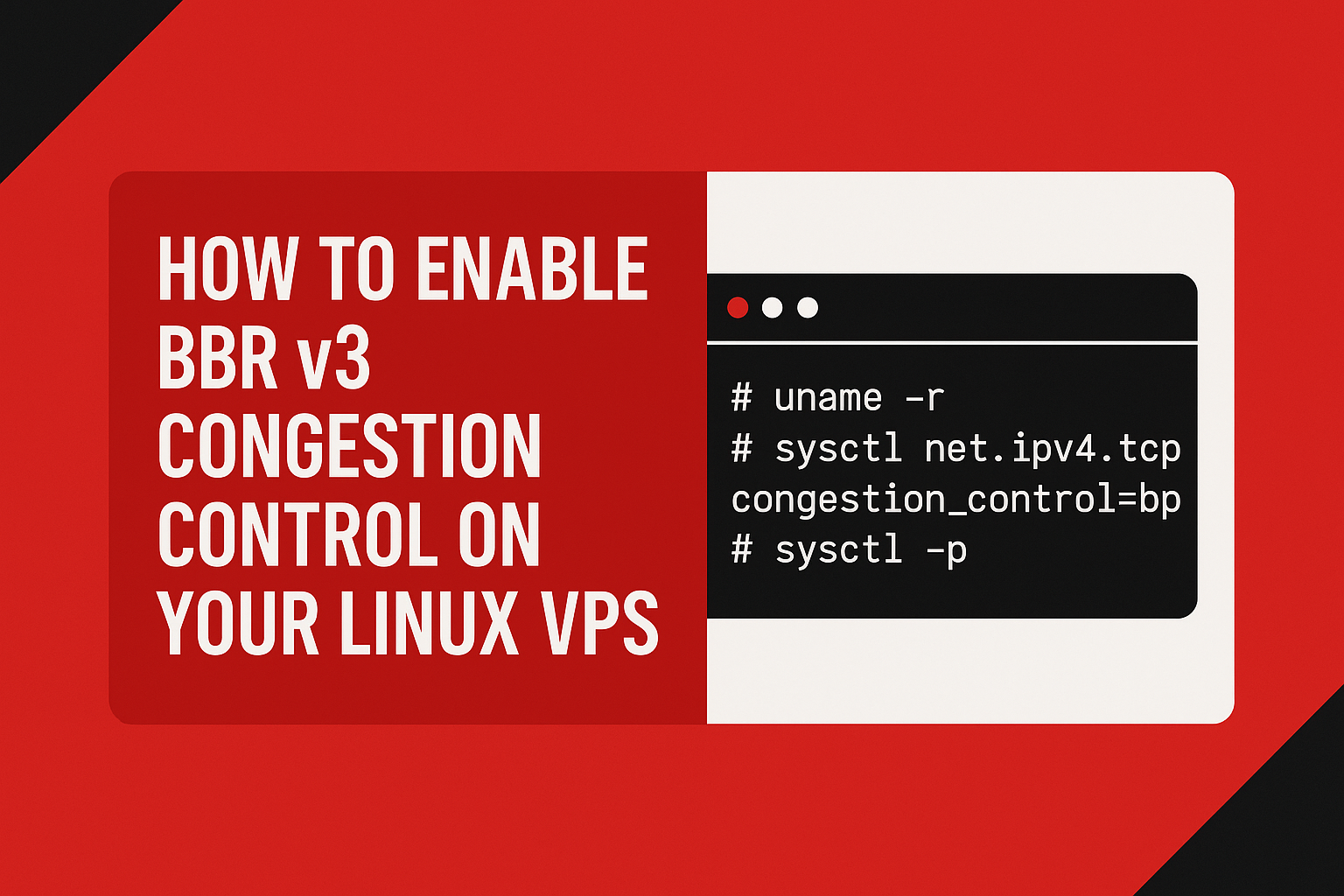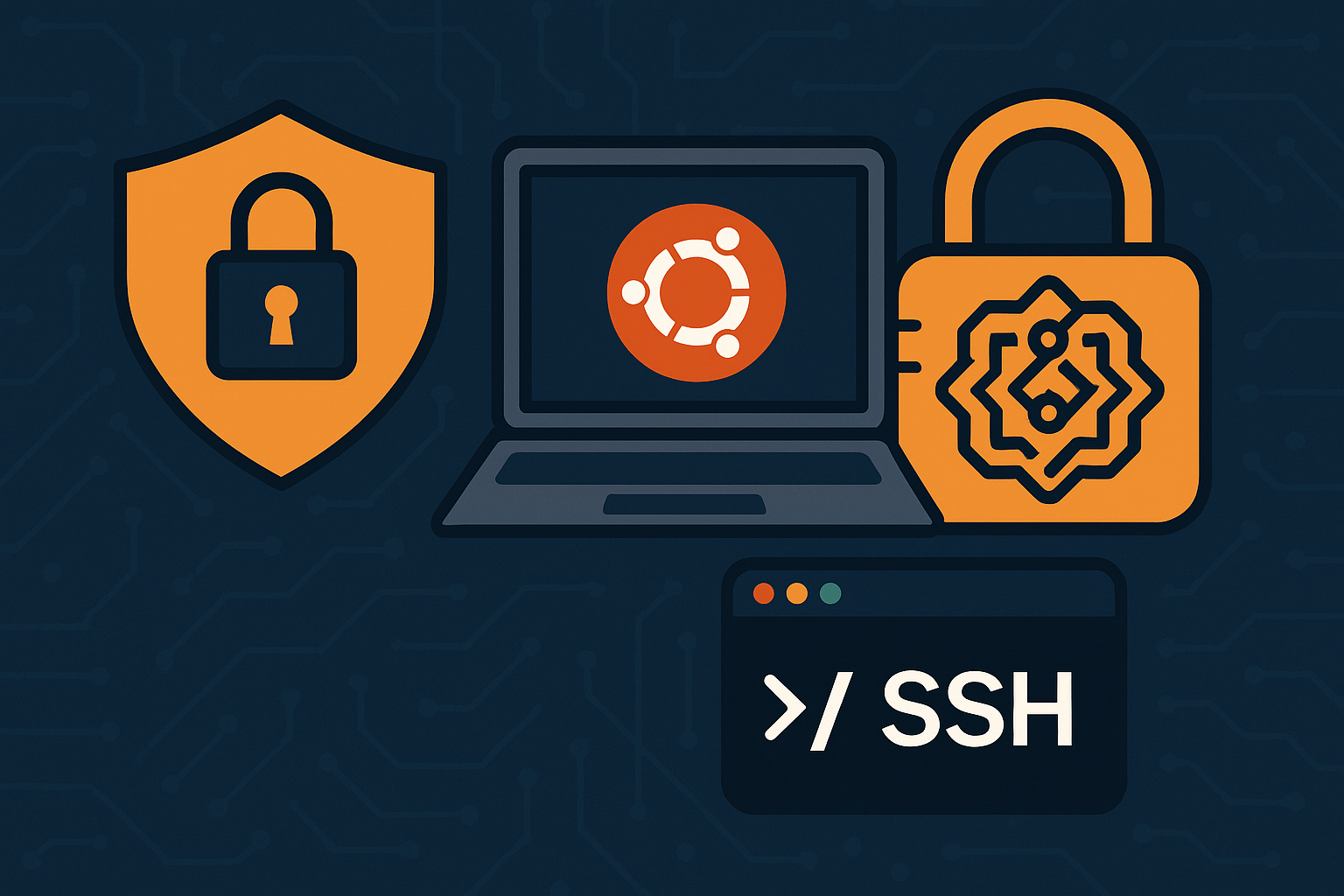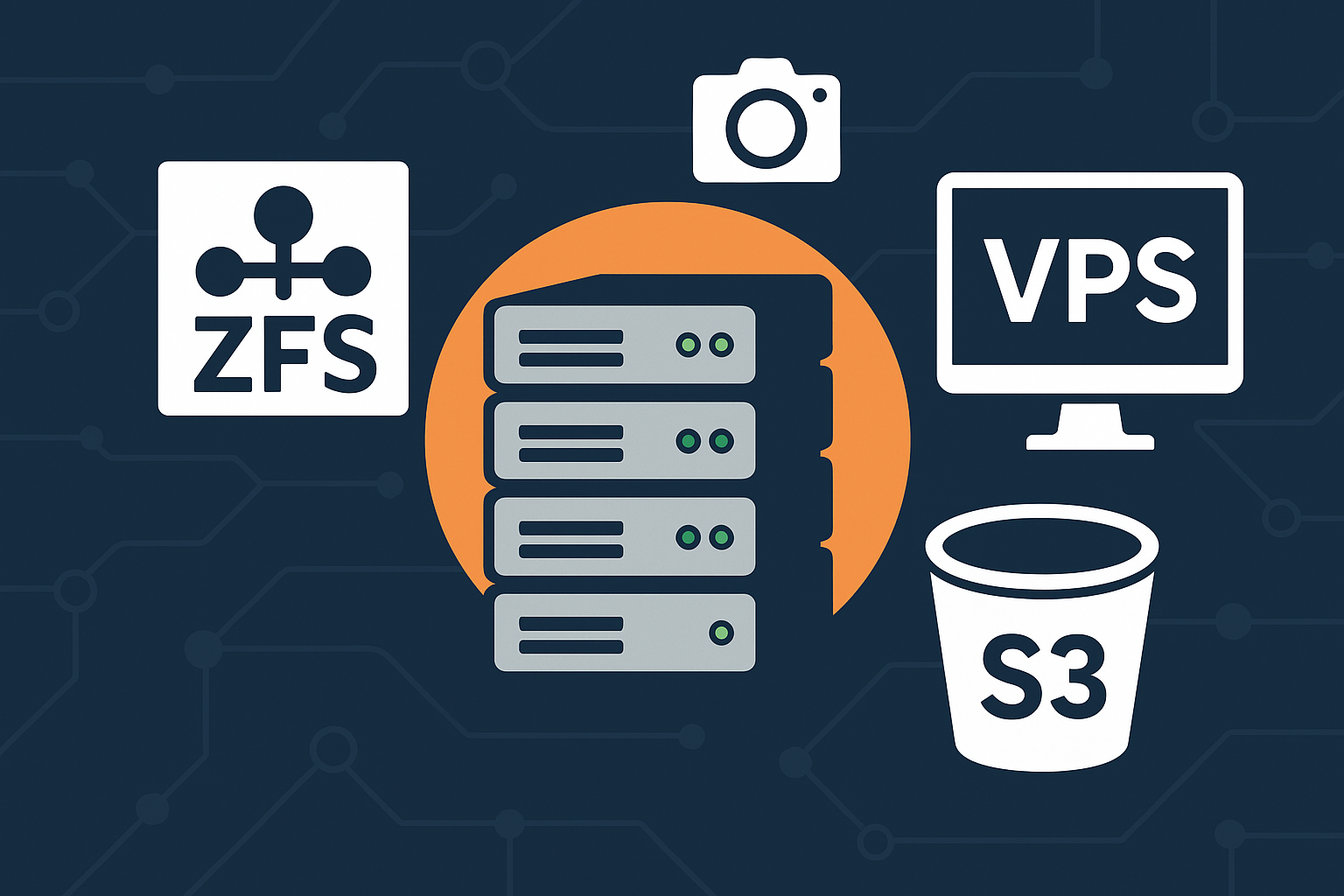How to Enable BBR v3 Congestion Control on Your Linux VPS (Ubuntu 24.04, Debian 12+)

Introduction
Network congestion control algorithms play a crucial role in optimizing internet performance, especially for VPS hosting and cloud infrastructure. BBR (Bottleneck Bandwidth and Round-trip propagation time) is Google’s revolutionary congestion control algorithm that has transformed how TCP connections handle network bottlenecks. The latest iteration, BBR v3, brings significant improvements in throughput, latency, and fairness compared to traditional algorithms like CUBIC.
Unlike conventional loss-based congestion control methods, BBR operates on a model-based approach that estimates available bandwidth and round-trip time to optimize data transmission. This results in dramatically improved performance, particularly beneficial for high-performance computing, streaming services, and applications requiring consistent network performance.
In this comprehensive tutorial, you’ll learn how to enable BBR v3 congestion control on modern Linux distributions including Ubuntu 24.04 and Debian 12+. By the end of this guide, you’ll have optimized your VPS network performance and understand the underlying mechanisms that make BBR v3 superior to traditional congestion control algorithms.
Prerequisites
Before proceeding with this tutorial, ensure you have the following requirements:
- Operating System: Ubuntu 24.04 LTS, Debian 12+ (Bookworm), or other modern Linux distributions with kernel 6.1+
- Kernel Version: Linux kernel 6.1 or later (BBR v3 support)
- System Resources: Minimum 1 GB RAM, 1 vCPU (recommended: 2+ GB RAM for optimal performance)
- Root Access: Administrative privileges or sudo access
- Network Access: Active internet connection for package updates
- Basic Linux Knowledge: Familiarity with command-line operations and system configuration
Warning: Modifying kernel parameters can affect system stability. Always test changes in a non-production environment first.
Step-by-Step Tutorial
Step 1: Verify System Compatibility
First, check your current kernel version and available congestion control algorithms:
# Check kernel version
uname -r
# List available congestion control algorithms
cat /proc/sys/net/ipv4/tcp_available_congestion_control
# Check current congestion control algorithm
cat /proc/sys/net/ipv4/tcp_congestion_controlEnsure your kernel version is 6.1 or higher. If BBR is not listed in available algorithms, you may need to update your system.
Step 2: Update System Packages
Update your system to ensure you have the latest kernel and networking components:
# For Ubuntu 24.04
sudo apt update && sudo apt upgrade -y
# For Debian 12+
sudo apt update && sudo apt full-upgrade -y
# Install essential networking tools
sudo apt install -y net-tools iproute2 tcpdumpReboot your system if kernel updates were installed:
sudo rebootStep 3: Load BBR Kernel Modules
Load the necessary kernel modules for TCP optimization:
# Load BBR module
sudo modprobe tcp_bbr
# Verify module is loaded
lsmod | grep bbr
# Make module loading persistent
echo 'tcp_bbr' | sudo tee -a /etc/modules-load.d/modules.confStep 4: Configure Sysctl Parameters
Create a comprehensive sysctl configuration for optimal network performance optimization:
# Create BBR configuration file
sudo nano /etc/sysctl.d/99-bbr.confAdd the following configuration:
# BBR v3 Congestion Control Configuration
net.core.default_qdisc = fq
net.ipv4.tcp_congestion_control = bbr
# TCP Buffer Optimization
net.core.rmem_max = 134217728
net.core.wmem_max = 134217728
net.ipv4.tcp_rmem = 4096 87380 134217728
net.ipv4.tcp_wmem = 4096 65536 134217728
# TCP Performance Tuning
net.ipv4.tcp_window_scaling = 1
net.ipv4.tcp_timestamps = 1
net.ipv4.tcp_sack = 1
net.ipv4.tcp_no_metrics_save = 1
net.ipv4.tcp_moderate_rcvbuf = 1
# Network Stack Optimization
net.core.netdev_max_backlog = 5000
net.ipv4.tcp_slow_start_after_idle = 0Step 5: Apply Configuration
Apply the new sysctl settings:
# Apply settings immediately
sudo sysctl -p /etc/sysctl.d/99-bbr.conf
# Reload all sysctl configurations
sudo sysctl --systemStep 6: Verify BBR Activation
Confirm BBR v3 is active and functioning:
# Check current congestion control algorithm
cat /proc/sys/net/ipv4/tcp_congestion_control
# Verify queue discipline
cat /proc/sys/net/core/default_qdisc
# Check BBR statistics (if available)
ss -i | grep bbrStep 7: Performance Testing
Test your network performance improvements:
# Install iperf3 for bandwidth testing
sudo apt install -y iperf3
# Test download speed
iperf3 -c speedtest.serverius.net -p 5002
# Monitor network statistics
watch -n 1 'cat /proc/net/sockstat'Best Practices
Monitoring and Maintenance
- Regular Monitoring: Use tools like
ss,netstat, andiftopto monitor network performance and connection states - Log Analysis: Monitor system logs for any BBR-related messages or network errors using
journalctl -f - Performance Benchmarking: Regularly test network performance using iperf3 and compare results with baseline measurements
Security Considerations
- Backup Configuration: Always backup your original sysctl configuration before making changes
- Gradual Implementation: Test BBR v3 in staging environments before production deployment
- Resource Monitoring: Monitor CPU and memory usage, as BBR may slightly increase computational overhead
Optimization Tips
- Application-Specific Tuning: Different applications may benefit from specific TCP buffer sizes
- Hardware Considerations: Ensure your network interface cards support the increased throughput BBR can provide
- Combination with Other Optimizations: Consider implementing additional network optimizations for specific use cases
Conclusion
Enabling BBR v3 congestion control on your Linux VPS can significantly improve network performance, reducing latency and increasing throughput for your applications. This modern approach to congestion control is particularly beneficial for cloud infrastructure and high-performance computing environments.
The configuration changes we’ve implemented optimize your system for better network utilization while maintaining stability and security. BBR v3’s model-based approach provides superior performance compared to traditional algorithms, especially in high-bandwidth, high-latency network conditions.
For optimal results, consider deploying these optimizations on high-performance VPS infrastructure. Onidel VPS in Singapore, Sydney, and Amsterdam provide the perfect foundation for BBR v3 optimizations with high-performance EPYC Milan processors and high-availability NVMe storage, ensuring your applications can fully benefit from these advanced networking optimizations.
Related Articles

How to Encrypt Your Ubuntu 24.04 VPS with LUKS2 In-Place: Complete Remote SSH Unlock Guide (2025)

ZFS on Ubuntu 24.04 VPS: Complete Installation and Performance Guide with Snapshots and S3 Backups
